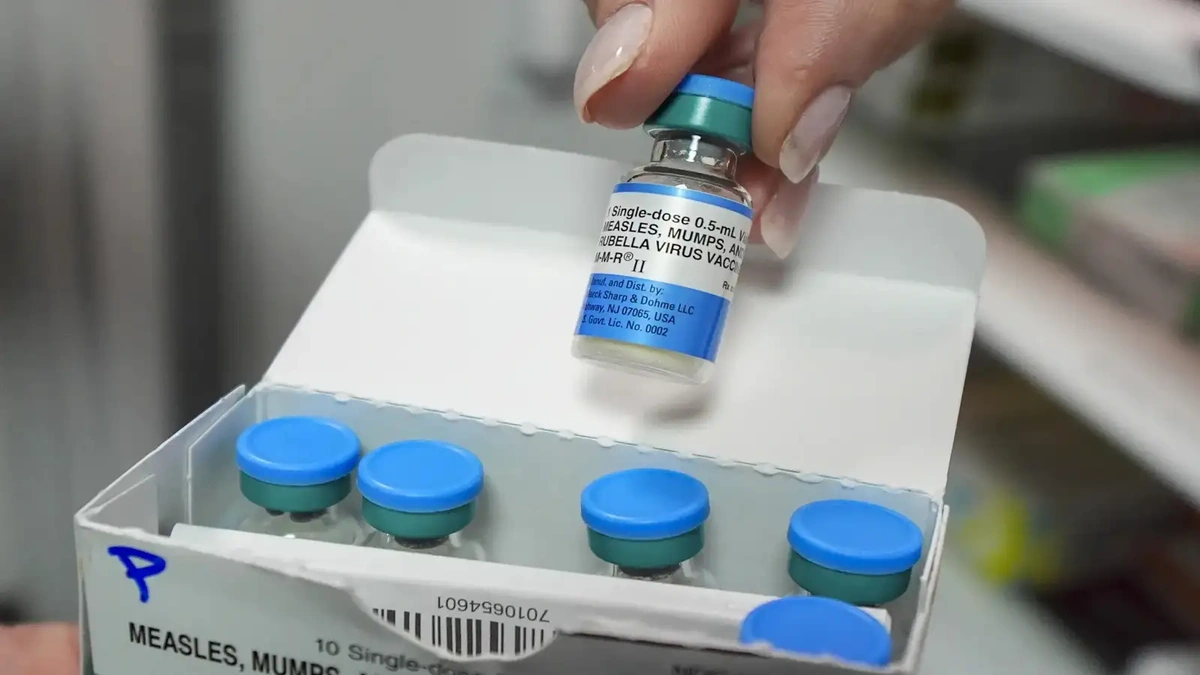Hold on, did you hear that right? The acting director of the CDC is floating the idea of splitting the MMR vaccine – measles, mumps, and rubella – into separate shots. Now, before you start panicking or high-fiving, let’s break down why this is even being considered and what it could mean for you, especially if you’re in India.
Why Even Consider Splitting the MMR Vaccine?

Okay, so here’s the thing. The current combination vaccine is generally considered safe and effective. But, let’s be honest, vaccines aren’t just about science; they’re also about public trust. What fascinates me is the CDC is likely responding to parental concerns. See, some parents worry about giving their child multiple antigens at once. This isn’t new; it’s been simmering for years. Proponents of splitting argue that it allows for a more tailored vaccination schedule, aligning with individual risk factors and parental preferences. The challenge of ensuring comprehensive coverage if the shots are administered separately also exists.
But what are the potential downsides? Logistically, it’s a nightmare. Instead of one appointment, you’re talking about three. That’s three times the cost, three times the potential for missed appointments, and three times the administrative burden. And honestly, that’s a big deal, especially in a country like India where access to healthcare can already be a challenge. According to the CDC , the combined MMR vaccine is the most effective way to prevent these diseases.
The Implications for India | A Closer Look
Now, let’s bring this home. India has made tremendous strides in vaccination coverage . But measles outbreaks, for instance, still happen. What happens if the MMR vaccine is split? Well, several things could happen. The most important thing is that it could further complicate immunization programs. Getting people to come in for one shot is hard enough. Getting them to come back three times? That’s a whole different ballgame. Moreover, there’s the economic angle. India’s public health system has limited resources. Splitting the vaccine means more syringes, more personnel time, and more logistical complexity. This may strain an already taxed system.
Let me rephrase that for clarity: could this disproportionately affect vulnerable populations? Absolutely. People in rural areas, those with limited access to transportation, or those facing economic hardships might find it harder to complete the entire series of individual shots. The effectiveness of achieving herd immunity across different Indian demographics should also be assessed.
Is There a Middle Ground? Addressing Parental Concerns
So, is there a better way? Maybe. Instead of outright splitting the vaccine, perhaps the focus should be on better communication and education. Honestly, a lot of the hesitancy comes from misinformation and a lack of trust in the system. What if healthcare providers had more time to sit down with parents, address their concerns, and explain the science in plain language? What if there was a nationwide campaign dispelling myths about the MMR vaccine ? Education is key here. The [ Internal Link Pool : COVID vaccine ] rollout showed us how effective a well-run public awareness campaign can be.
Also, improving vaccine delivery systems in rural areas could boost confidence. Things like mobile vaccination clinics, community health workers, and leveraging technology to track and remind parents about appointments can all play a role. I initially thought this was straightforward, but then I realized the nuances of implementing any policy change across a diverse landscape like India.
Expert Opinions and Scientific Evidence
What do the experts say? Well, the scientific consensus is pretty clear: the MMR vaccine is safe and effective. Organizations like the Indian Academy of Pediatrics and leading virologists are unlikely to support a split without compelling evidence of a significant benefit. As per guidelines mentioned on leading virology websites, evidence supporting the split based on individual risk factors is still lacking.
And that’s crucial. Any decision to change the vaccination schedule needs to be based on solid science, not just anecdotes or opinions. We must also consider the ethical implications of changing a well-established protocol. The benefits must clearly outweigh the risks, especially for vulnerable populations.
But, this decision could be seen as a public health debate. Acting CDC director is trying to find a balance between public perception and the best course of action to reach the best healthcare outcomes.
Here’s the important thing: the potential change isn’t an official decision, but rather a suggestion by the acting CDC director . With the measles-mumps-rubella vaccine the benefits of combining them into one vaccination shot outweigh any perceived benefits of making them individual.
MMR Vaccine: Future of Immunization
This whole debate highlights a bigger issue: the need for continuous improvement in our vaccination strategies. That includes not just the science behind the vaccines, but also the way we communicate about them and deliver them to the people who need them most. It’s not about simply saying, “Trust us, we’re the experts.” It’s about building genuine partnerships with communities and addressing their concerns with empathy and respect. The [ Internal Link Pool : MMR vaccine single dose ] is safe and effective, according to multiple studies.
FAQ About MMR Vaccine
What if my child has a reaction to the MMR vaccine?
Most reactions are mild, like fever or rash. Serious reactions are rare. Contact your doctor immediately if you’re concerned.
Is the MMR vaccine safe for children with allergies?
In most cases, yes. But talk to your doctor about specific allergies, especially egg allergies.
What if I forgot my child’s vaccination schedule?
Contact your doctor or local health clinic. They can help you catch up.
Where can I find more information about the MMR vaccine schedule?
Visit the World Health Organization (WHO) or your local health department’s website.
What is combination vaccine?
A combination vaccine is a single injection that protects against multiple diseases.
What is the current status of vaccination coverage in India?
India has made significant progress, but challenges remain in reaching all populations.




